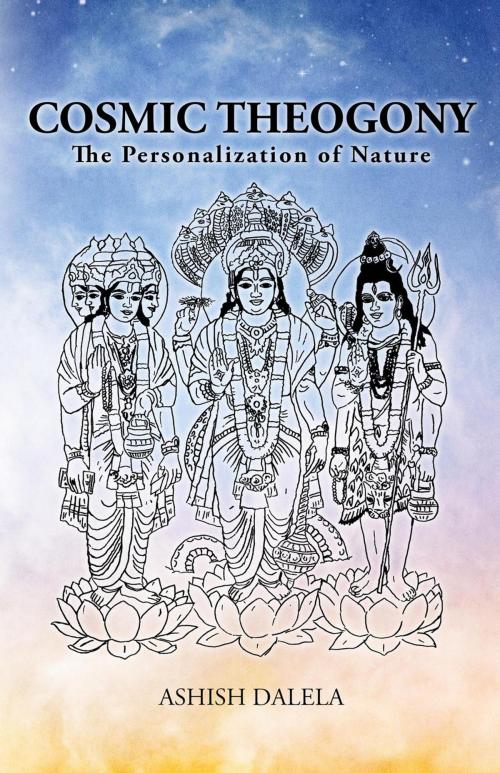Cosmic Theogony : The Personalization of Nature
Nonfiction, Religion & Spirituality, Eastern Religions, General Eastern Religions, Hinduism, Reference, Comparative Religion| Author: | Ashish Dalela | ISBN: | 9789385384127 |
| Publisher: | Shabda Press | Publication: | July 14, 2018 |
| Imprint: | Language: | English |
| Author: | Ashish Dalela |
| ISBN: | 9789385384127 |
| Publisher: | Shabda Press |
| Publication: | July 14, 2018 |
| Imprint: | |
| Language: | English |
Cosmic Theogony describes the Vedic trinity comprising the deities Vishnu, Shiva, and Brahma, which reflect the three aspects of the soul in Vedic philosophy, namely, cognition, emotion, and relation. The trinity initially led to the worship of the sun, the moon, and the stars, and then to the three dominant forms of religion, namely, monotheism, monism, and polytheism prevalent today.
It discusses the similarities between Greek, Roman, and Egyptian mythologies and the Vedic one, as well as the conceptual foundations on which three types of calendars—solar, lunar, and sidereal—are based, showing how the number of months in a year, days in a month, and hours in a day are not an accident; they are rather based upon a science of concepts reflected in our language and our minds.
The book also discusses the myriad similarities between world religions, using which we can create a tree of classification.
Cosmic Theogony describes the Vedic trinity comprising the deities Vishnu, Shiva, and Brahma, which reflect the three aspects of the soul in Vedic philosophy, namely, cognition, emotion, and relation. The trinity initially led to the worship of the sun, the moon, and the stars, and then to the three dominant forms of religion, namely, monotheism, monism, and polytheism prevalent today.
It discusses the similarities between Greek, Roman, and Egyptian mythologies and the Vedic one, as well as the conceptual foundations on which three types of calendars—solar, lunar, and sidereal—are based, showing how the number of months in a year, days in a month, and hours in a day are not an accident; they are rather based upon a science of concepts reflected in our language and our minds.
The book also discusses the myriad similarities between world religions, using which we can create a tree of classification.















